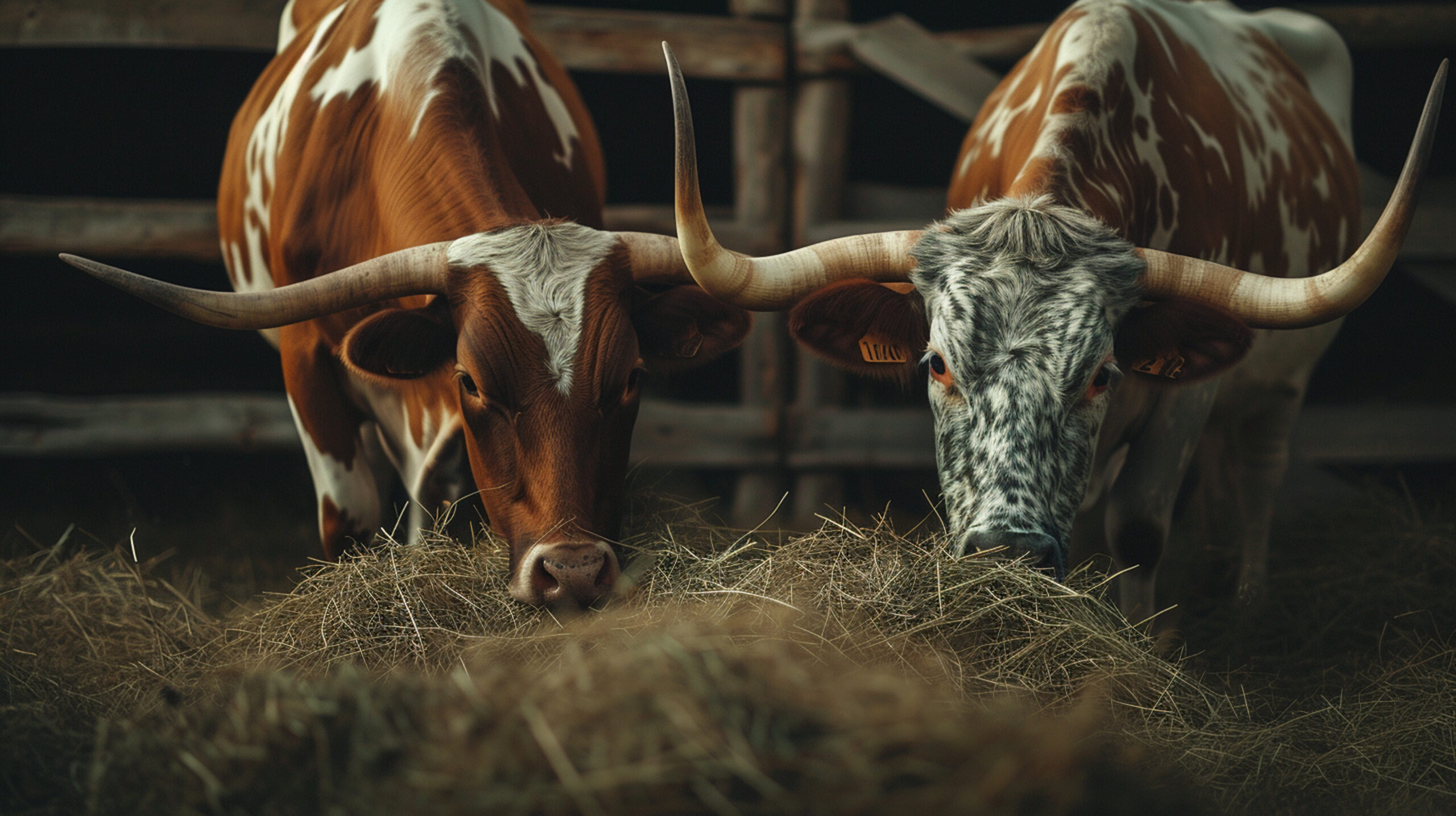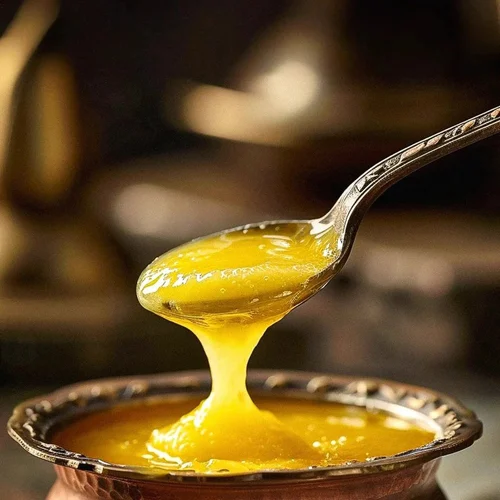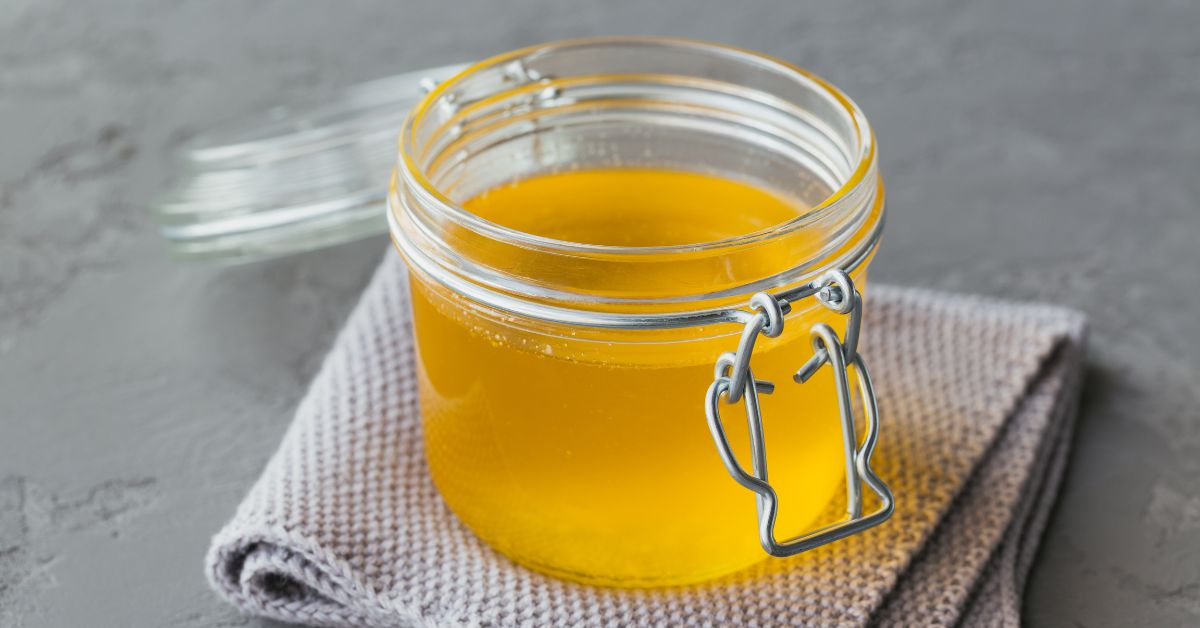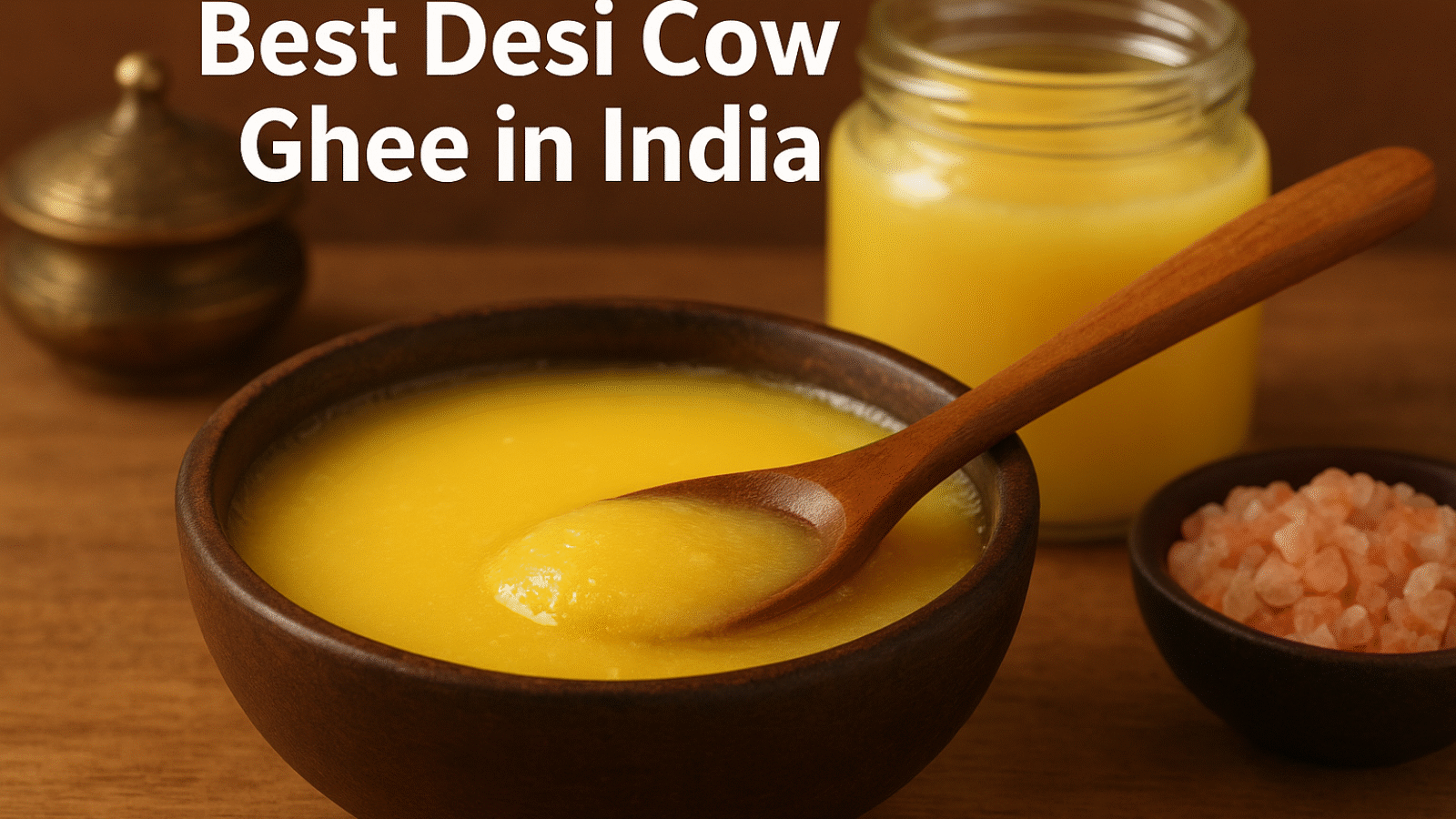Best Desi Cow Ghee in India: Health Benefits
Desi cow ghee is more than just a cooking ingredient—it’s a time-honored superfood treasured in Indian households for generations. From enhancing the flavor of your meals to offering a myriad of health benefits, ghee is truly versatile. But with so many brands and types on the market, how do you know which one to choose? In this comprehensive guide, we’ll dive deep into everything you need to know about the best desi cow ghee in India.
What is Desi Cow Ghee?

Desi cow ghee is clarified butter made from cow’s milk, traditionally prepared by simmering butter until all moisture evaporates, leaving behind pure golden fat. Unlike regular butter, ghee has a long shelf life, high smoke point, and rich, nutty flavor. It’s widely used in Indian cuisine, Ayurvedic medicine, and even beauty routines.
What Are the Health Benefits of Desi Cow Ghee?
Desi cow ghee is loaded with healthy fats, vitamins, and antioxidants. Here’s why it’s good for you:
-
Boosts Immunity: Rich in conjugated linoleic acid (CLA) and butyric acid, which support gut health and immunity.
-
Aids Digestion: Helps the absorption of fat-soluble vitamins like A, D, E, and K.
-
Supports Heart Health: Moderate consumption can improve HDL cholesterol and reduce inflammation.
-
Enhances Brain Function: Contains omega-3 and omega-6 fatty acids beneficial for cognitive health.
-
Promotes Healthy Skin: Can be applied topically or consumed to maintain radiant, soft skin.
Pro Tip: For maximum health benefits, choose organic, grass-fed desi cow ghee, avoiding ghee made from buffalo milk or synthetic additives.
How Do You Choose the Best Desi Cow Ghee in India?
Choosing the right ghee can be tricky. Look for these key indicators:
-
Purity: Check labels for 100% cow milk; avoid ghee mixed with vegetable oils.
-
Color & Aroma: Pure desi ghee is golden yellow with a rich, nutty aroma.
-
Texture: Should be smooth and creamy at room temperature, not grainy.
-
Source: Prefer grass-fed, organically raised cows for higher nutrient content.
-
Brand Reputation: Trusted brands often undergo quality checks ensuring purity.
Insider Tip: Artisanal small-batch ghee often offers the richest flavor and higher nutritional value than mass-produced brands.
Is Cow Ghee Better Than Buffalo Ghee?

Cow ghee and buffalo ghee have distinct differences:
-
Cow Ghee: Lighter, aromatic, easily digestible, higher in vitamins A, D, E, and K.
-
Buffalo Ghee: Creamier, richer, higher fat content, better for cooking at high heat but harder to digest.
Verdict: For daily consumption and health benefits, cow ghee is preferred, while buffalo ghee may be suitable for special culinary uses.
Can Desi Cow Ghee Help with Weight Loss?
It might sound counterintuitive, but yes, moderate consumption of desi cow ghee can support weight management:
-
Improves digestion and nutrient absorption
-
Boosts metabolism through CLA (conjugated linoleic acid)
-
Provides satiety, reducing unhealthy snacking
Note: Portion control is key—1–2 teaspoons a day is sufficient for most adults.
How Should You Store Desi Cow Ghee for Maximum Shelf Life?
Proper storage ensures ghee stays fresh and maintains its nutrients:
-
Cool, Dry Place: Keep away from sunlight and moisture.
-
Airtight Container: Prevents oxidation and contamination.
-
Avoid Refrigeration: Room temperature is ideal; refrigerating can solidify it too much.
-
Use Clean Utensils: Prevents introducing bacteria or moisture.
Pro Tip: Ghee stored correctly can last up to a year without losing flavor or nutrients.
How to Use Desi Cow Ghee in Cooking?
Desi cow ghee is incredibly versatile:
-
Indian Cooking: Add to dals, curries, and rotis for authentic flavor.
-
Baking: Replace butter for a nutty aroma.
-
Tadka (Tempering): Enhances flavor of spices in curries.
-
Spreads: On bread, parathas, or toast for a traditional touch.
Pro Tip: For maximum nutrition, avoid overheating; add ghee toward the end of cooking whenever possible.
Desi Cow Ghee in Ayurveda
Ayurveda considers ghee a tridoshic food suitable for all body types. Benefits include:
-
Detoxification and digestion support
-
Boosting memory and brain function
-
Nourishing skin and hair
-
Enhancing absorption of herbal medicines
Expert Tip: Warm a teaspoon of ghee with herbal powders for enhanced medicinal benefits.
Signs of High-Quality Desi Cow Ghee

-
Golden Yellow Color: Indicative of grass-fed cows
-
Nutty Aroma: Fresh, fragrant, and slightly sweet
-
Smooth, Grain-Free Texture: No water separation or artificial additives
-
Label Verification: Organic, AGMARK-certified, or FSSAI-approved
Cooking Tips for Maximum Flavor
-
Use ghee in low-to-medium heat dishes.
-
Combine with spices like cumin, turmeric, and garlic for added aroma.
-
Add a teaspoon to cooked rice or lentils just before serving for a signature taste.
Common Mistakes to Avoid
-
Overheating: Destroys beneficial nutrients.
-
Using Unclean Utensils: Introduces bacteria and reduces shelf life.
-
Buying Cheap or Blended Ghee: Often contains additives and low-quality fats.
How Much Desi Cow Ghee Should You Consume Daily?
-
Adults: 1–2 teaspoons per day
-
Children: ½–1 teaspoon per day
-
Use in cooking or as a topping for flavor and nutrients
Moderation ensures health benefits without excess calorie intake.
Pairing Desi Cow Ghee with Other Ingredients
-
Ghee + Turmeric: Immune-boosting golden paste
-
Ghee + Honey: Supports digestion and provides energy
-
Ghee + Milk: Traditional remedy for better sleep and nourishment
Conclusion
Choosing the best desi cow ghee in India is about balancing purity, health benefits, and flavor. Incorporating ghee into your diet can boost immunity, improve digestion, and enhance flavor in your favorite recipes. Start small, enjoy the rich aroma and taste, and make ghee a wholesome part of your daily routine.
Additional FAQs
1. Can I use desi cow ghee for frying?
Yes, it has a high smoke point, making it ideal for frying and sautéing without breaking down into harmful compounds.
2. Is desi cow ghee suitable for vegans?
No, ghee is a dairy product derived from cow’s milk, so it is not vegan-friendly.
3. How does grass-fed cow ghee differ from regular cow ghee?
Grass-fed cow ghee has higher omega-3 fatty acids, CLA, and vitamins, making it more nutritious and flavorful.
4. Can ghee replace butter in baking?
Absolutely! It adds a rich, nutty flavor but may slightly alter texture; adjust quantities accordingly.
5. How do I know if desi cow ghee is adulterated?
Check for unnatural color, chemical smell, grainy texture, or overly cheap pricing; always buy from trusted sources.



Add a Comment